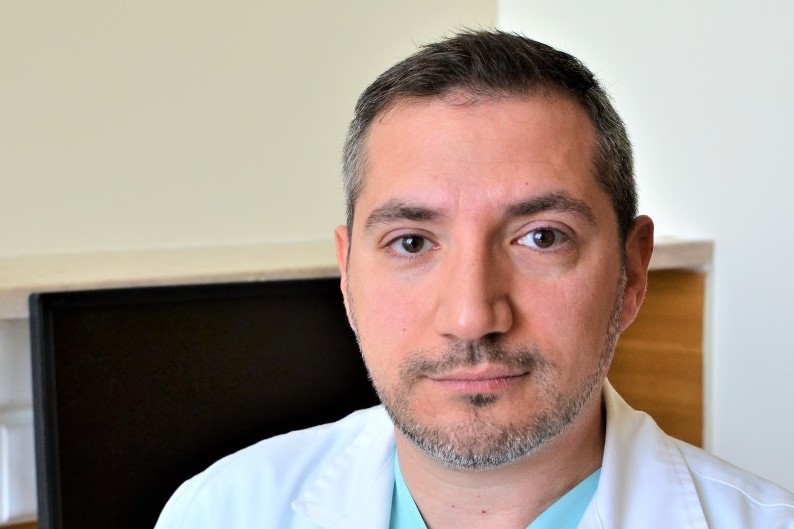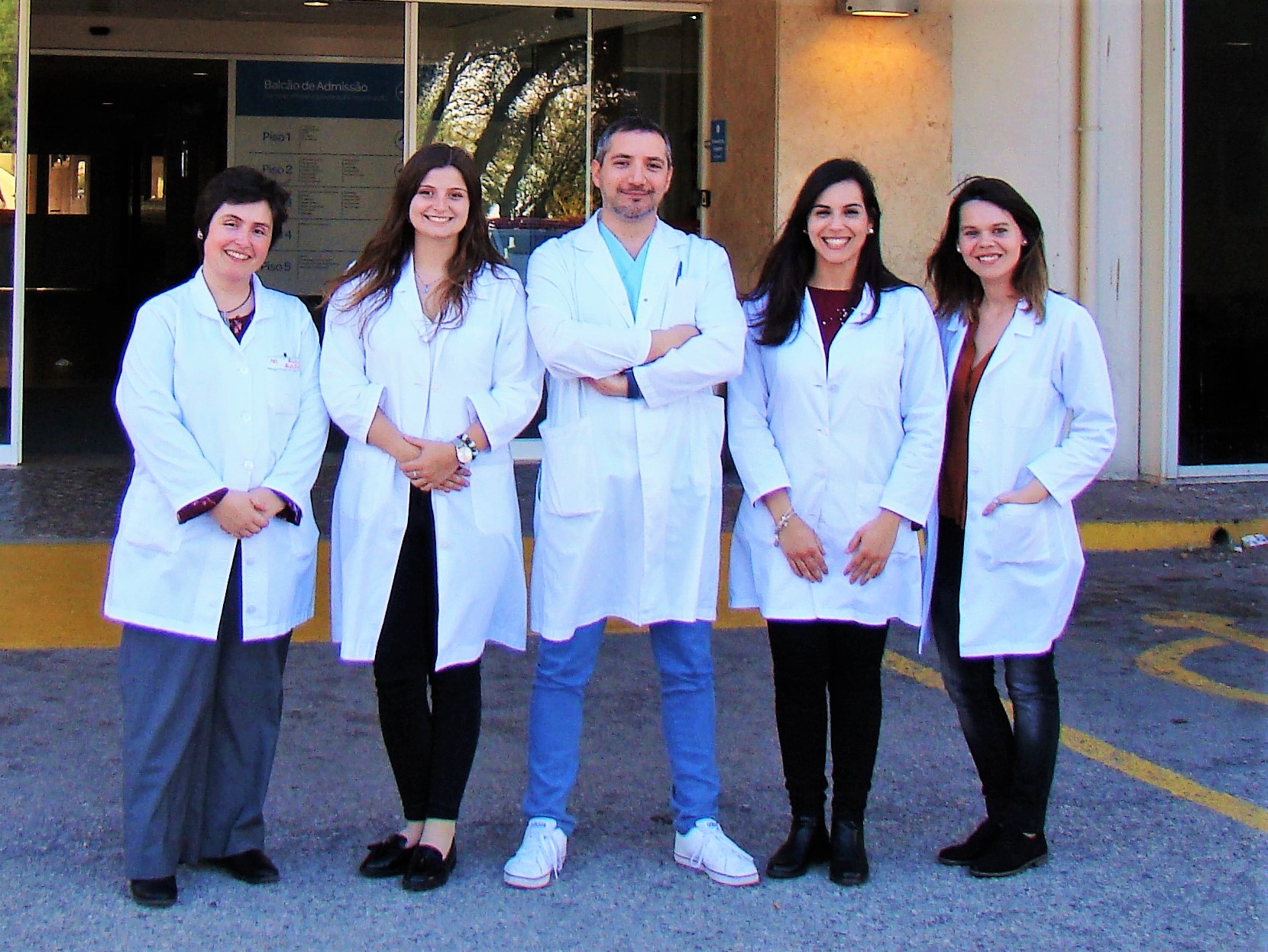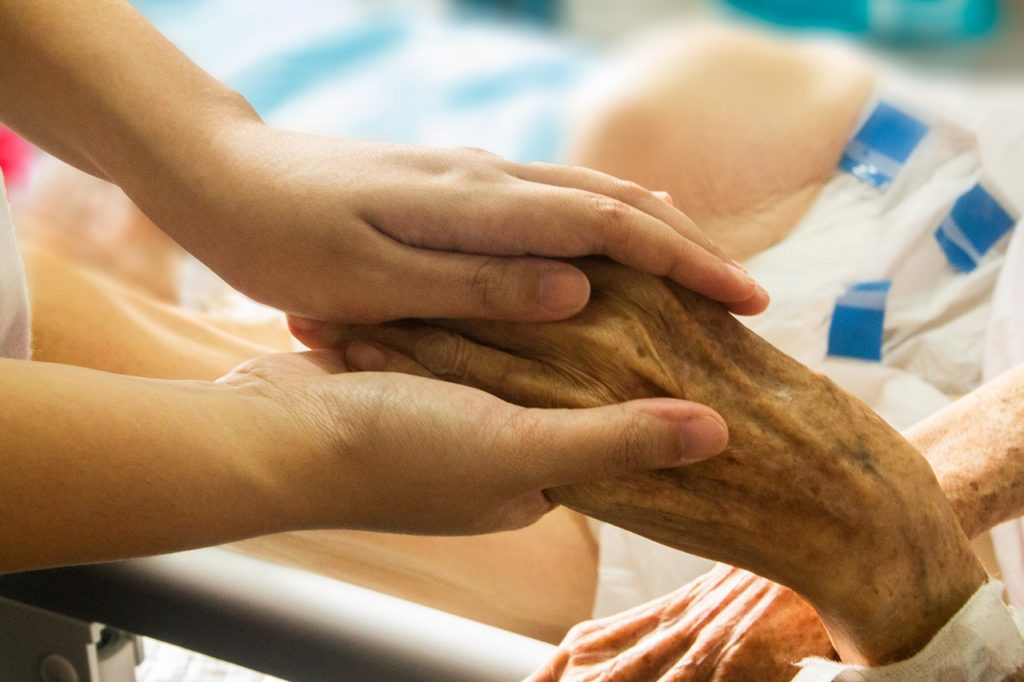The University Hospital Center of the Algarve has a team that “gives a hand” to terminally ill patients and their families and accompanies them in the final stages of the disease, in death and in mourning.
A The Psychosocial Support Team (EAPS) in the area of Palliative Care came into function at the beginning of the year and it is a project created and financed by the “La Caixa” Foundation, under the Comprehensive Support Program for People with Advanced Diseases, known as the Humaniza Programme, in Portugal.
This support gave «the possibility of having more human resources, with external funding, to further improve the psychosocial and spiritual care of patients who are being followed in palliative care», explains doctor Giovanni Cerullo, technical director of EAPS , to Sul Informação.
Currently, four professionals make up the team: two social workers and two psychologists, but «bearing in mind that the program will have a long duration, we hope, our goal is, in this first year, to organize ourselves and, eventually, if there is need, make an application to increase the number of professionals».
But what makes this team different to palliative care? First, a new approach: “in Portugal, the core palliative care team is made up of a doctor, a nurse, a social worker and a psychologist. Until now, the work has been done through a multidisciplinary team, where each person, with a different specialty, works. But, right now, we are thinking of an interdisciplinary model. Each person has his profession, but he practices it interconnected with others. That's why the care and attention to the sick is done both from a psychosocial and spiritual point of view,” emphasizes Giovanni Cerullo.

This spiritual support is important in a “complicated situation of suffering and illness. When we are close to a situation that involves death, whether we are patients or family members, some questions arise from the depths of our soul. That's the spirituality part. We don't understand it as religion. It's something more intimate, more personal and profound».
Furthermore, on a psychological level, “there is the fear of dying, of death. We all have. The support we try to give is to help the patient, if needed, to see death as something that will naturally happen, but with less fear. We try to provide support and insight at a psychological level so that, eventually, outstanding issues can be resolved», exemplifies the clinician.
In the case of the family, the aim is to help «live the moment in a perspective of self-help, which minimizes the suffering that exists caused by the idea of death that, eventually, will come. In addition, EAPS plays an important role in grief. It is estimated that 10 to 15% of mourning is complicated. When family members have an unresolved grief, this leads to changes in quality of life and can lead to psychiatric illnesses, such as depression. Therefore, psychological support accompanies this entire final phase of the patient's and family's life and, afterwards, it also supports the mourning».
Giovanni Cerullo explains that it is as if there were “hands under the patient's family, holding them and taking them to the final stage. This is the philosophy of palliative care. Medicine tries to treat the disease, while palliative care seeks to take care of that person, the family and everything that involves this phase. Sometimes people feel that palliative care does nothing and that when there is nothing to do, it is activated. It's not like this. In palliative care, there is everything to be done».
EAPS, continues the doctor, «will complement the activity of the palliative care teams, but will also focus on the other pillars of the program, which is caring for the patient, family members, implementing volunteer work in palliative care and promoting training in palliative care and support for professional teams”.
EAPS «will also be responsible and help to complement the volunteering activity in the Algarve. The Portimão Unit has a volunteer group with a history and organized, and, in Faro, we are also organizing and implementing volunteering»
Since, “in palliative care, you cannot be just any volunteer and the person must have training and profile for that, the team is promoting the training of volunteers. Not only at the hospital level, but at the community level».

It is this integration with the community that makes the project innovative at a national level. “Right now, CHUA is the only hospital entity that has a project already implemented in the community. In other hospitals, there is only intra-hospital activity».
Giovanni Cerullo explains that, in order to put this “out-of-doors” support into practice, there is collaboration with “the teams that are called recipients, these are the palliative care team of the Hospital de Faro, the palliative care team of the Hospital de Portimão, the community team of ACES do Barlavento and the community team of ACES Central».
“Patients are followed by the community palliative care team at the Health Centres, and the psychosocial support team collaborates with that team. There is a survey of the family's needs and, when there is a situation in which the role of the volunteer can be important, if the family accepts, there is an action», he adds.
For the clinician, this support at the community level is “very important. It is important to have the support of volunteers in the patients' homes. The patient is at home with support from family members for 24 hours, but the family needs to have activities, to go out, to do simple things, other than just going to the appointment and shopping. At that moment, volunteer work intervenes to help take care of the patient and the family. In this part of volunteering, we are in the organization phase, either at the hospital level or at the community level».
The role of the psychosocial support team is to «complement the activity of the existing teams by suggesting changes in the modus operandi».
One of the examples given by the doctor Giovanni Cerullo of the possible actions of volunteers – and which can be a good help – takes place in the hospital: “there are basic things, which for us make no difference, but for a family member they do. Someone comes to accompany the patient to the appointment and find no parking. He leaves the patient alone and goes anxiously to find parking. What can happen is that, when the patient has an appointment, the volunteer has the list with the telephone number and will contact the family member. Ask if they are arriving and will be waiting to receive the patient. The family member will park calmly, because the patient is not alone».
The same can happen when “in consultations, the family member needs to talk to us, asking some questions, or to get psychological support and he cannot. The volunteer, together with the occupational therapist, will intervene».
This is what support is: taking care of the patient and the family», he concludes.



















Comments